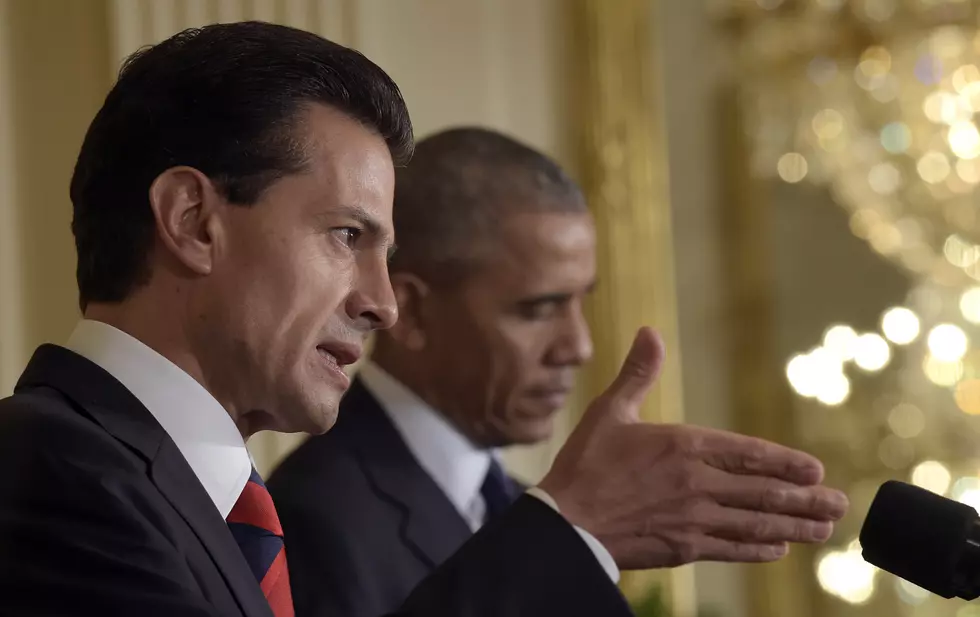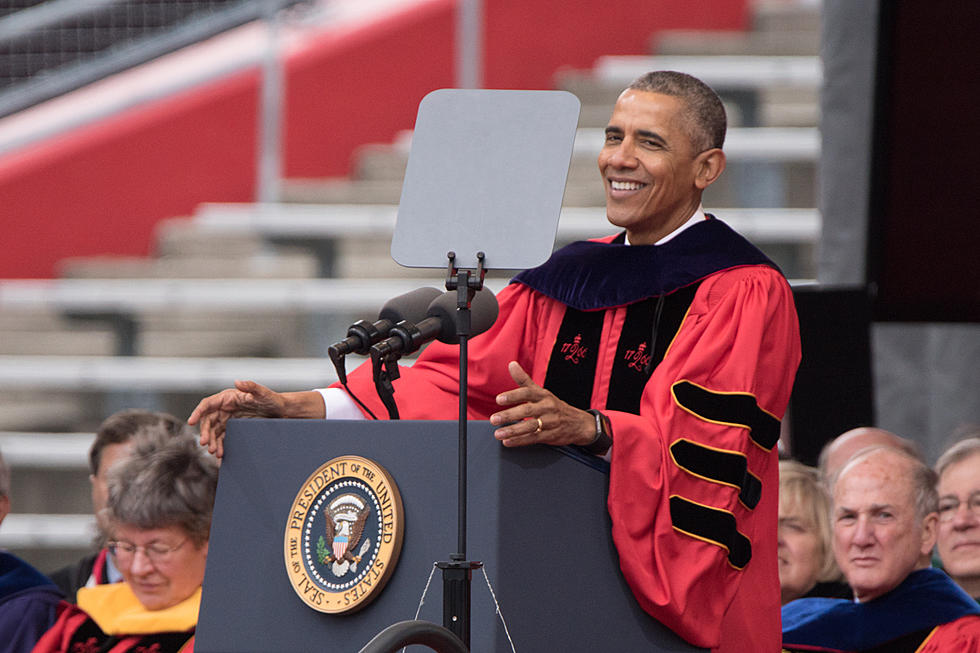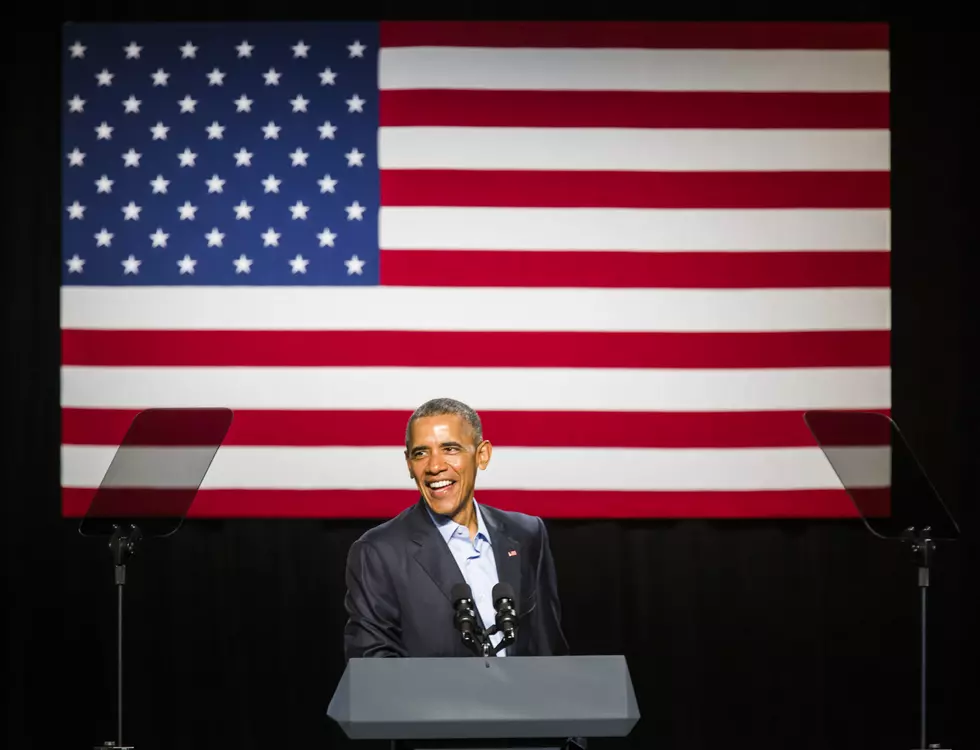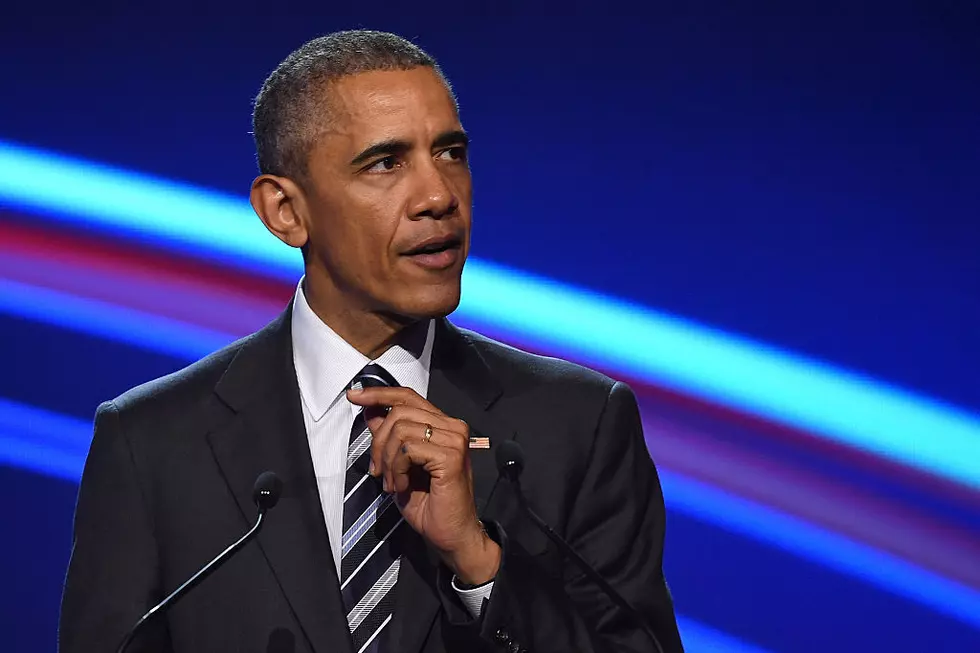![Obama Heads for East Asia After Visiting Australia [VIDEO]](http://townsquare.media/site/385/files/2011/11/obama.jpg?w=980&q=75)
Obama Heads for East Asia After Visiting Australia [VIDEO]
Aiming to knit Asian allies ever closer as China's might rises, President Barack Obama is completing a nine-day Asia-Pacific trip with a visit to his boyhood home of Indonesia, where he'll become the first U.S. president to take part in a summit of East Asian nations.
Security issues and the U.S. vision for an increasingly robust American role in Asia are expected to be central themes for Obama's participation in the East Asia Summit in Bali, where the president was due to arrive Thursday night after traveling from Australia.
But concerns over China may shadow the president's meetings Friday and Saturday with leaders of smaller Asian nations increasingly alarmed over China's claims to maritime passage and rich oil reserves in the South China Sea.
Obama will also get a chance to meet on the summit sidelines with leaders such as Indian Prime Minister Manmohan Singh, with whom the president has an especially close personal relationship, as the U.S. looks to bulk up regional alliances and encourage big roles for friends.
For Obama, the visit will mark a homecoming to the country where he lived for four years as a boy after his mother married an Indonesian man and moved them to Jakarta. Obama visited Jakarta last year and spent time during that visit reflecting on his personal ties to Indonesia, something he probably won't have as much time for on this trip. But Obama's background as a Hawaii native partly raised in Indonesia has shown throughout his trip, which began with an economic summit in Honolulu and ends when he departs Bali on Saturday.
While in Bali, Obama will be aiming to expand commercial ties and export opportunities with fast-growing Asia, looking for ways to underscore the connection between his foreign travels and U.S.
jobs with an election year approaching. Nuclear nonproliferation, disaster relief and maritime security also are U.S. priorities. But behind it all, China looms large.
The centerpiece of Obama's visit to Australia was announcement of a new military agreement that will allow more U.S. military aircraft and a rotating presence of U.S. Marines into Australia, a move largely seen as a hedge against China, which immediately objected.
In Bali, Obama will encounter more allies eager for U.S. support as China and its smaller neighbors argue over the South China Sea, an area that is critical to U.S. interests as well.
He arrives after Secretary of State Hillary Rodham Clinton earlier this week signed a declaration with her counterpart from the Philippines calling for multilateral talks to resolve maritime disputes such as those over the South China Sea. Six countries in the region have competing claims, but China wants them to negotiate one-to-one -- and chafes at any U.S. involvement.
Clinton said the U.S., during the East Asia Summit, "will certainly expect and participate in very open and frank discussions," including on the maritime challenges in the region.
Beijing said Tuesday it opposes bringing up the issue at the summit. It's not clear how much will be said publicly about the dispute, but U.S. officials are quick to note the importance of the South China Sea, where $1.2 trillion in U.S. trade moves annually, according to Adm. Robert Willard, head of the U.S. Pacific Command.
Briefing reporters traveling with Obama this week, Willard called it "a vital interest to the region, a national interest to the United States, an area that carries an immense amount of commerce, and an area in which we must maintain maritime security and peace and not see disruptions as a consequence of contested areas."
(Copyright 2011 by The Associated Press. All Rights Reserved.)
More From New Jersey 101.5 FM









